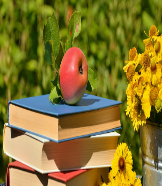The First Peoples Principle of Learning, “Learning recognizes the role of Indigenous knowledge” highlights the importance of us as educators making sure we educate ourselves first when it comes to Indigenous knowledge before trying to integrate Indigenous perspectives and content in our teaching practices. Jo Chrona (2016), who is the Curriculum Manager for the First Nations Education Steering Committee, when explaining the significance of this principle, states that there needs to be a “willingness of educators to see themselves as learners, and seek to develop their own understandings first.” I think taking this course, for me, is one way I can do that, as well as through my own research, but that is not enough. I realize this learning continues. I found that there is a free 6-week MOOC available through UBC on Reconciliation through Indigenous Education, which seems to offer much value through the course description. I see there are also similar courses offered at other universities in Canada as well.
Have any of you taken this course or a similar MOOC—if so, how did you find it?
Chrona, J. (2016). First Peoples Principles of Learning. https://firstpeoplesprinciplesoflearning.wordpress.com/
Reconciliation through Indigenous Education. (2021). Reconciliation MOOC. UBC. https://pdce.educ.ubc.ca/reconciliation/


